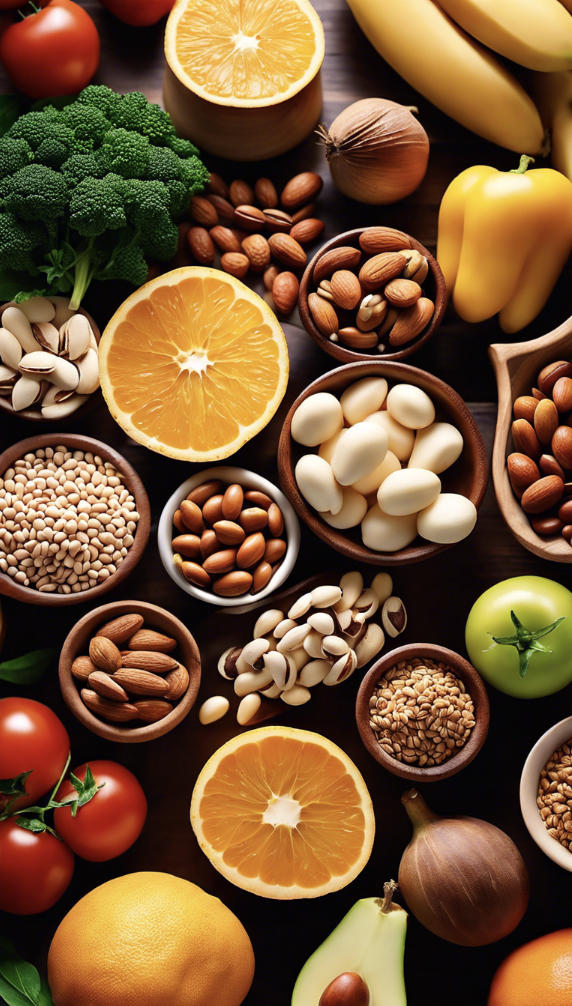
Throughout this website you have seen a common theme emerge: Eating balanced meals of mostly wholesome natural foods is the key towards health and preventing metabolic disease (Fig 1). Eating mostly balanced meals of healthy proteins, fats and complex carbohydrates from whole natural sources is the best way to prevent metabolic diseases like type 2 diabetes and obesity.
Over the last 100 years we have set in motion a path towards metabolic dynfunction in our society that eventually leads to obesity, type 2 diabetes and cardiovascular disease. We have done this by the introduction of what I call the three “harbingers of metabolic discord.”
These are:
- Sugar (especially high fructose corn syrup)
- Ultra Processed Foods (UPFs)
- Refined gluten (industrially produced that has been bred for high gluten content & is high in additives/preservatives)
The Metabolic Effects of Excess Sugar
Because I am an endocrinologist, we will begin with the first harbinger; sugar.
Consumption of excessive amounts of sugar causes weight gain, insulin resistance, fatty liver disease, dental caries, nervous system dysregulation and cardiometabolic disease. We have all heard this in some form of another. However, let’s get to the nitty gritty of how this happens exactly so that we can learn the processes that are occurring in our body when we put it under this specific type of stress.
- Weight Gain: Sugary foods and beverages are often high in calories but low in nutritional value. An excess of calories, leads to weight gain. Second, and likely most important, when you consume more sugar than your body needs for immediate energy, the excess sugar undergoes a series of metabolic processes that ultimately convert it into fat.
- Excess glucose leads to the production of acetyl-CoA, which, when in surplus, is channeled into pathways that synthesize fatty acids. These fatty acids are then converted into triglycerides and stored in fat cells, increasing body fat.
- Have you ever been told you have high triglycerides? Excessive sugar intake is usually the cause. In the setting of a genetic predisposition to store fat this can happen even in younger individuals who do not have excess weight to begin with.
- Blood Sugar Spikes and Crashes: Eating sugary foods and beverages can lead to rapid spikes in blood sugar levels, followed by crashes. This can result in feelings of fatigue, irritability, and cravings for more sugar.
- Insulin Resistance: High sugar intake leads to insulin resistance. The cells in our bodies need insulin in order to be able to use sugar for energy. Think of insulin as the “key” that allows sugar to enter the cells of the body to do its job. When the body has to make more and more insulin due to higher and higher glucose levels in the blood we develop insulin resistance. This makes it harder for the body to respond to the effects of insulin. Eventually this leads to type 2 diabetes.
- Increased Risk of Heart Disease: Diets high in added sugars raise the blood pressure, increase inflammation, and as previously mentioned elevates triglycerides. All of these factors negatively impact cardiovascular health.
- Dental Issues: Sugars provide a source of energy for bacteria in the mouth, leading to the production of acid. This acid can contribute to tooth decay and cavities.
- Increased Risk of Metabolic Syndrome: Excessive sugar intake increases our risk of developing metabolic syndrome. Having 3 out of the following 5 conditions confers a diagnosis of the metabolic syndrome:
- High blood pressure
- High fasting blood sugar
- Abnormal cholesterol levels (low good cholesterol -HDL)
- High triglycerides (a type of fat in the blood)
- Having excess abdominal fat (waist above 35 inches for women above 40 inches for men)
- Inflammation: High sugar intake contributes to chronic inflammation in the body, which is linked to various health problems, including autoimmune diseases, cancer, and neurodegenerative disorders (read my post on meta-inflammation).
- Addictive Properties: Sugar has been shown to activate reward centers in the brain, leading to cravings and a potential for addiction-like behavior. This can make it challenging for some individuals to control their sugar intake (guilty as charged here).
It’s important to note that I am referring to refined and excess sugars such as those found in candy, pastries, sweets, cakes, juices, prepared cereals, sweetened canned fruits, processed foods, high fructose corn syrup, sugary drinks etc. When you consume naturally occurring sugars in whole foods such as fruits and vegetables, they are not as concentrated in sugars as processed foods, and they come with vitamins and nutrients such as fiber which your body needs.
How We Can Lower Our Excess Sugar Consumption
We do not have to completely eliminate sugar consumption in order to be healthier. Reducing our sugar consumption can be an achievable goal that can have significant health benefits, including improved weight management, better blood sugar control, and a lower risk of chronic diseases. Here are some actionable measures you can take to reduce your sugar intake:
1. Read Food Labels
- Check Ingredients: Look for hidden sugars under different names (e.g., sucrose, high fructose corn syrup, maltose, dextrose, etc.).
- Nutritional Information: Pay attention to the “Total Sugars” and “Added Sugars” on the nutrition label. Added sugars are the sugars the company has added to the product on top of the naturally containing sugar. Try to avoid or minimize added sugars.
2. Choose Whole Natural Foods
- Fruits and Vegetables: Opt for fresh, whole fruits and vegetables instead of canned or processed versions with added sugars. One of those canned fruit products can have enough sugar to cover the daily recommended amount of sugar intake of 3 adults.
- Whole Grains: Try to select whole grains like oats, quinoa, and brown rice over processed grains more often than not.
3. Ditch/Limit Sugary Beverages
- Water: Drink water or sparkling water instead of sodas, fruit juices, and energy drinks.
- Unsweetened Beverages: Choose unsweetened tea, coffee, or herbal infusions.
- Skip the specialty coffee drinks that usually contain more sugar than is recommended we consume in a whole day (or make it an occasional treat, not the norm)
4. Cook at Home
- Homemade Meals: Prepare meals at home to control the ingredients and avoid added sugars and unhealthy oils found in many restaurant and takeout meals.
- Natural Sweeteners: Use small amounts of natural sweeteners like coconut sugar, date sugar, honey or maple syrup if needed, but sparingly.
5. Reduce Sugar in Recipes
- Baking: Reduce the amount of sugar in recipes for baked goods. Often, you can cut the sugar by one-third to one-half without significantly affecting the taste. Try flours that are not as refined as white bleached flour such as cassava flour or even kiawe flour which is locally made in Hawai’i.
- Flavor Enhancers: Use spices like cinnamon, nutmeg, or vanilla extract to enhance sweetness without adding sugar.
6. Healthy Snacking
- Nuts and Seeds: Choose unsweetened nuts and seeds as snacks.
- Fresh Fruit: Opt for whole fruits instead of fruit-flavored snacks or dried fruits with added sugars.
7. Mindful Eating
- Portion Control: Be mindful of portion sizes, especially for desserts and sweet treats.
- Savor Slowly: Eat slowly and savor the natural flavors of foods to reduce the desire for sweetened foods.
8. Avoid Sugar Substitutes
- Artificial Sweeteners: Be cautious with artificial sweeteners, as they can increase cravings for sweet foods. While they may not directly raise your glucose level your body still “sees it” as sugar and this can cause inflammation. Some have also been associated with cancer.
- Natural Alternatives: Use alternatives like stevia or monk fruit, but also in moderation.
9. Plan and Prepare
- Meal Planning: Plan your meals and snacks to include a balance of protein, healthy fats, and fiber, which can help reduce sugar cravings.
- Healthy Options: Keep healthy snacks available to avoid reaching for sugary options when hungry.
10. Educate and Monitor
- Awareness: Stay informed about the sugar content in foods and beverages.
- Tracking: Use a food diary or app to track your sugar intake and identify areas for improvement.
11. Support and Motivation
- Family and Friends: Encourage family members to join you in reducing sugar intake for mutual support.
- Professional Guidance: Consult with a nutritionist or dietitian for personalized advice and strategies.
- Follow accounts on social media that are also health conscious for regular motivation and recipe ideas.
Remember, the key is to create a balanced and sustainable approach to nutrition. Small, gradual changes tend to be more effective and easier to maintain over the long term than drastic approaches. Eating healthier is not about going on a diet, it is a moving towards a healthier lifestyle. You may not need to implement each of these steps. However, implementing even a few of these measures as best you can will significantly reduce your sugar intake and improve your overall health and well-being.


